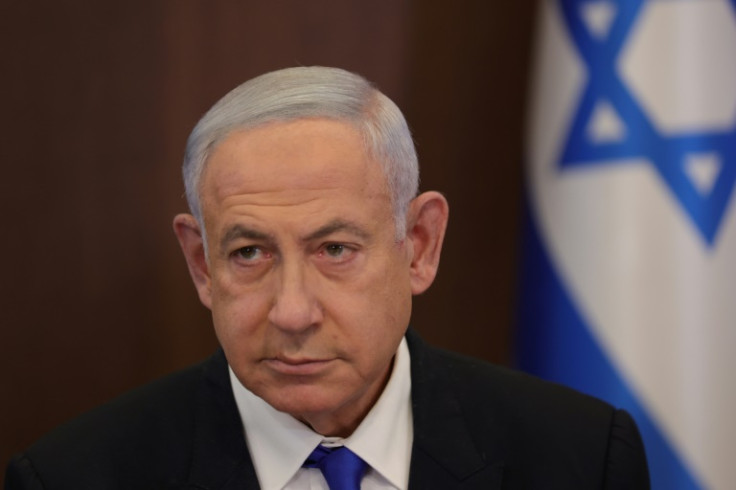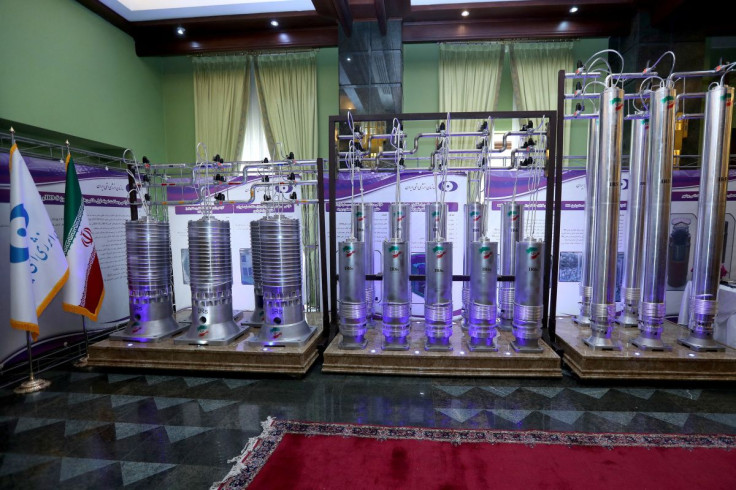'Only Way' To Stop Iran's Nuclear War Threat Is With Another Military Threat: Netanyahu

KEY POINTS
- Israel's Netanyahu sees a credible military threat as the "only way" to stop Iran's nuclear program
- Netanyahu said stopping Iran's nuclear ambitions is the U.S. and Israel's responsibility
- He claimed that Iran could still produce nuclear weapons despite having an agreement
Israeli Prime Minister Benjamin Netanyahu does not see Iran's nuclear deal effectively stopping Tehran's nuclear power ambitions.
In an interview with CNN's Fareed Zakaria, Netanyahu insisted that his opposition to the nuclear agreement is not misguided and pitched a military option to stop Iran's nuclear program.
"If you want to stop Iran from becoming a military nuclear power, the only way to stop them is with a credible military threat," Netanyahu said.
The Israeli prime minister said the responsibility to stop Iran from becoming a military nuclear power is on the U.S., Israel, and its Arab neighbors.
Netanyahu argued that a credible military threat effectively thwarted the previous nuclear ambitions of Iraq, Syria and Libya.
He claimed that Iran could continue its nuclear production despite having an agreement with other countries.
"It doesn't stop the development of the missiles, it doesn't stop the development of the weapons," Netanyahu said.
"It does enable them to continue developing the centrifuges that would have brought them to a point where in two years, in one year, they have the ability approved by the international community to enrich your uranium at an unlimited rate," the Israeli prime minister added.
Earlier this month, the Biden administration held talks with European and Israeli partners about a proposal to forge an interim agreement with Iran.
Axios reported that U.S. officials briefed Israel, France, Germany and the U.K. in February about its new proposal to curb Iran's nuclear program.
According to some Israeli officials, Western diplomats and U.S. experts familiar with the matter, the proposal would include lifting some of the sanctions imposed against Iran in exchange for freezing parts of its nuclear program, including halting enriching uranium at 60% purity.
But sources told Axios that the Iranians have rejected the U.S. proposal so far, saying they only want to return to the original agreement.
In 2015, a landmark agreement was reached between Iran, the U.S., Germany and other permanent members of the U.N. Security Council, imposing restrictions on Tehran's nuclear enrichment program in exchange for sanctions relief.
However, in 2018, then-President Donald Trump announced the U.S.'s withdrawal from the Joint Comprehensive Plan of Action (JCPOA), claiming the agreement had flaws.
Negotiations between Iran and the U.S. restarted under the Biden administration, but it fell apart last year after failing to make significant progress.
Last month, Defense Undersecretary Colin Kahl warned that Iran could now produce one bomb's worth of fissile material in "about 12 days."
A confidential report by the U.N. nuclear watchdog International Atomic Energy Agency (IAEA) revealed that Iran is almost close to producing weapons-grade uranium with 90% purity.

© Copyright IBTimes 2025. All rights reserved.





















